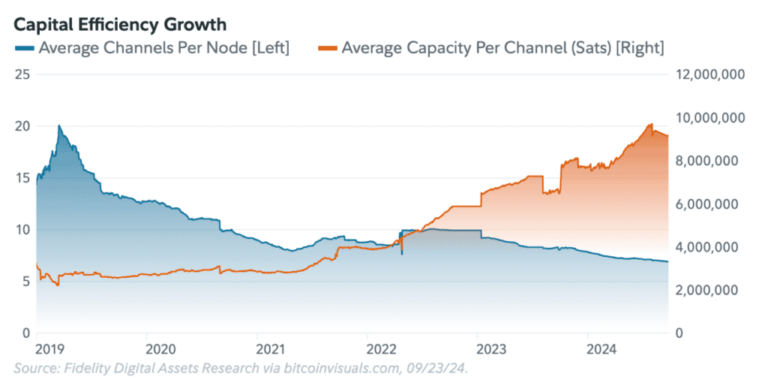
[ad_1]

The U.S. Marshals Provider (USMS) is tasked with managing belongings seized through legislation enforcement during felony investigations, like actual property, money, jewellery, antiques or automobiles.
Additionally it is meant to be dealing with cryptocurrencies — for instance, the billions of greenbacks value of bitcoin (BTC) seized through the Federal Bureau of Investigation (FBI) from darknet market Silk Street in 2013.
Then again, the USMS doesn’t appear to understand how a lot crypto it recently has. If truth be told, the firm is suffering to get a hold of a coarse estimate of even its bitcoin holdings, a supply accustomed to the topic advised CoinDesk.
Which may be an issue, in gentle of White Area Crypto Czar David Sacks’ announcement previous this month that the U.S. executive is actively finding out the potential of constituting a countrywide crypto reserve — that means that the federal government would possibly prevent liquidating seized cryptocurrencies, or even probably make crypto purchases.
“Whilst you get started speaking about reserves, you wish to have to be accustomed to the original homes of the belongings, like forks, airdrops, and the consistent volatility,” mentioned Les Borsai, co-founder of Wave Virtual Property, a company that gives asset control products and services and has been in a dispute with the USMS over now not getting employed as a contractor, in an interview with CoinDesk. “It’s important to have the businesses skilled sufficient or coping with execs that know the way to lend a hand them reach their objectives.”
Even though the crypto reserve by no means sees the sunshine of day, managing and liquidating seized virtual belongings is a an important position for the firm, particularly since asset forfeiture is used to lend a hand fund the Division of Justice (DOJ).
“So far as I am mindful, the USMS is recently managing this with person keystrokes in an Excel spreadsheet,” Chip Borman, vice chairman of seize technique and recommendations at Addx Company, a company that gives technological answers to the U.S. executive and used to be additionally became down for a USMS contract, advised CoinDesk. Borman mentioned he noticed USMS processes happen in actual time in 2023.
“They are one unhealthy day clear of a billion-dollar mistake.”
USMS historical past of crypto control
The firm’s troubles with crypto aren’t new. Timothy Clarke, CEO of crypto consulting company ECC Answers, advised CoinDesk that a large number of frustration had constructed up in opposition to the USMS from each the private and non-private sectors through the years.
As just lately as 2019, the firm “solely treated a handful of cryptocurrency belongings, like 8 or 10, so all of the other U.S. executive businesses needed to do their very own garage, as an alternative of the USMS doing its process and intaking seizures,” mentioned Clarke, a former particular agent on the Division of Treasury.
No longer solely would the USMS take weeks to offer bitcoin deposit addresses to businesses after they’d simply made a seizure, he mentioned, however the firm would merely proportion them over e-mail with none form of encryption or verification procedure.
At different businesses, like IRS Prison Investigation (IRS-CI), such delicate knowledge is generally both communicated in video calls or by way of read-only encrypted attachments with follow-up requires passwords and read-back verification of the addresses — and that’s if consultants don’t come at once on-site to deal with crypto wallets themselves.
“It used to be very, very unsecure,” Clarke mentioned. “It’s simply stunning that not anything came about within the years they did that.”
The USMS declined to remark.
Again in 2022, the Administrative center of the Inspector Normal (OIG) warned that the USMS used to be suffering within the control and monitoring of its holdings.
“The USMS didn’t have ok insurance policies associated with seized cryptocurrency garage, quantification, valuation, and disposal, and in some circumstances, steering used to be conflicting,” the OIG mentioned.
As an example, the USMS didn’t have measures in position to trace forked belongings — cryptocurrencies which can be created on every occasion a blockchain does a cut up, recognized within the business as a troublesome fork — suppose Bitcoin Money (BCH) or Bitcoin Satoshi Imaginative and prescient (BSV), either one of which forked off of Bitcoin. “In consequence, the USMS would possibly fail to spot and observe forked belongings, and thereby lose the chance to promote the ones belongings when they’re forfeited,” the OIG mentioned.
The spreadsheets on which the firm used to be depending to trace its quite a lot of crypto holdings additionally contained inaccuracies, the OIG discovered.
In November 2022, 5 months after the OIG document used to be revealed, USMS mentioned (whilst it used to be on the lookout for a contractor to lend a hand it deal with its crypto belongings) that it had misplaced keep watch over of 2 Ethereum wallets because of a instrument replace.
“It’s unclear if the personal secret’s wrong, or the pockets malfunctioned,” the firm mentioned. “The Contractor will establish the problem(s) and probably open the pockets. If the pockets can’t be opened, documentation of efforts taken to liberate or open the pockets will likely be equipped to the USG.”
Clarke advised CoinDesk that it used to be unclear whether or not the problems with the Ethereum wallets had happened sooner than, all the way through, or after the OIG audit. The OIG document itself makes no point out of mismanaged Ethereum wallets or lacking ether (ETH).
“At a minimal it speaks to a loss of a backup pockets and loss of competent garage, replace, and dealing with procedures,” Clarke mentioned.
“The belief is that the whole thing has remained the similar because the 2022 OIG Findings,” John Millward, leader running officer at Addx, advised CoinDesk in an interview.
Millward mentioned he understood there to be a unmarried worker managing the belongings disposal “presently on a retail account,” although the firm wasn’t to be had to verify such main points. He mentioned the duty had now not been assigned to a senior worker “in spite of the huge monetary tasks and legal responsibility this one particular person controls.”
Liquidating crypto forward of stockpile determination
In July 2024, at a Bitcoin convention in Nashville, President Trump mentioned that, if elected, he would instruct the government to forestall promoting seized bitcoin. That used to be an concept first driven through Senator Cynthia Lummis (R-WY), one among bitcoin’s maximum vocal backers in Congress, who offered regulation aimed against constituting a countrywide bitcoin reserve.
On Jan. 15, just a few days sooner than Trump used to be set to take workplace, Lummis wrote a letter to Ronald L. Davis — who on the time used to be nonetheless director of the USMS — by which she expressed her alarm that DOJ lawyers looked to be engaged in a procedure to liquidate the 69,370 bitcoin (value kind of $6.6 billion) seized from Silk Street.
“Fresh court docket filings from previous this month display that the Division of Justice is bringing up bitcoin worth volatility to justify an expedited sale of those belongings,” she wrote.
“Much more troubling, the Division continues to aggressively push ahead with liquidation plans in spite of pending prison demanding situations, demonstrating an bizarre urgency to get rid of those belongings,” she added. “This rushed manner, going on all the way through the presidential transition duration, at once contradicts the incoming management’s mentioned coverage targets in regards to the status quo of a Nationwide Bitcoin Stockpile.”
Lummis requested the USMS (which handles seized belongings, however does now not make selections in the case of liquidations) to proportion the entire quantity of bitcoin it recently holds, to provide an explanation for why that knowledge has now not been made readily to be had in a public means, and to explain its monitoring and control procedures. The firm used to be given till Jan. 31 to respond to, however has but to officially reply, in step with a supply accustomed to the topic.
The USMS has contacted Lummis’ workplace two times because the letter used to be issued, the supply mentioned, however the firm used to be not able to respond to how a lot bitcoin it had below its keep watch over, blaming the shake-up led to through the trade in administrations. Lummis’ workplace declined to remark.
Vital quantities of bitcoin are it seems that being held through quite a lot of businesses around the management — together with the DOJ and Division of Treasury — and the USMS has no reconciliation procedure to determine the place all of it sits, the supply mentioned.
USMS procurement struggles
The OIG famous in 2022 that the USMS used to be taking proactive steps to spice up its control procedures through looking for to enlist the personal sector. The transfer would “help the USMS in addressing one of the most problems we recognized,” the OIG mentioned.
Then again, the firm has taken a very long time to award those contracts, and its selections were wondered through one of the most events concerned.
The USMS began taking a look into procurement in 2018 and primary awarded the contract to crypto trade Bitgo in April 2021. Then again, it used to be made up our minds that the trade didn’t meet the definition of a “small enterprise” (which used to be probably the most necessities for the contract). The award then handed directly to crypto custody company Anchorage Virtual in July 2021 — but Anchorage used to be additionally discovered too huge to fulfill the small-business standards.
The firm switched gears in 2024, awarding two other contracts: the primary for the control of so-called Elegance 1 cryptocurrencies (that means cash supported on centralized exchanges and in cold-storage wallets) and the second one for Elegance 2-4 cryptocurrencies (cash that don’t meet Elegance 1 necessities).
Crypto trade Coinbase gained the award for Elegance 1 in July, whilst the Elegance 2-4 contract went in October to Command Services and products & Fortify (CMDSS), a generation carrier supplier with enjoy running with the DOJ.
Arguable awarding
Those awards had been each contested in court docket. Anchorage’s protest, in opposition to Coinbase, used to be brushed aside, nevertheless it’s unclear whether or not the company has filed some other protest. The U.S. executive spending web site suggests that Coinbase has but to obtain fee for the contract. (Anchorage declined to remark. Coinbase didn’t reply to a request for remark.)
The Elegance 2-4 award, in the meantime, is the topic of an ongoing protest through Wave, which claims that CMDSS lacks the correct licensing for the contract — CMDSS isn’t approved with the Securities and Trade Fee (SEC) nor the Monetary Trade Regulatory Authority (FINRA) — and that the firm failed to correctly examine a struggle of hobby from CMDSS using a former USMS legit with get admission to to nonpublic knowledge.
The USMS, for its section, has mentioned that the successful bidder wasn’t required to be approved with the SEC or FINRA within the first position; the firm additionally claims to have correctly investigated any conflicts of hobby associated with former USMS workers.
“If you do not care in regards to the fundamentals, like being approved to deal with securities, which is probably the most fundamental working out of dealing with virtual belongings, then what are you doing? It simply displays you the way little they know in regards to the procedure,” Borsai mentioned. CMDSS didn’t reply to a request for remark.
Addx competed in opposition to Wave and CMDSS for the contract. Nonetheless, Millward mentioned that it could have made extra sense for Wave than CMDSS to protected the award, because the company possessed technical upside and presented to accomplish the paintings for a lower cost.
“I feel there’s a large number of private consider within the management of the awarded entity to determine it out and now not make the USMS glance unhealthy,” Millward mentioned.
Coping with smaller cryptocurrencies
The central theme from USMS’s critics is that the firm does not sufficiently perceive virtual belongings.
“They deal with crypto adore it’s a ship or a work of actual property,” Borsai mentioned. “The USMS may now not most likely perceive what they grasp if they don’t perceive the belongings. … They’re going to by no means get a correct determine, until they move all-in on a multi-agency shared machine.”
Millward and Borman mentioned that the USMS had problem working out that custody companies want the same quantity of assets to control a selected selection of Elegance 2-4 cash without reference to whether or not the tokens are value billions of greenbacks or simply cents.
The firm had prompt to Addx that if it gained the award it should were paid solely in a share of the belongings it could finally end up managing, as an alternative of a flat charge. The firm gave the impression stunned when Addx defined how pricey the custody answers could be.
“They mentioned, ‘We await by no means having greater than $500 in price at any given time,’” Borman mentioned. “They don’t take into account that through pass judgement on’s decree, that fob that accommodates 20 cents value of bitcoin must be tracked and analyzed, and destroying some fellow’s 20 cents is simply as egregious as crashing a Lamborghini on easy methods to the impound lot.”
[ad_2]
Supply hyperlink




